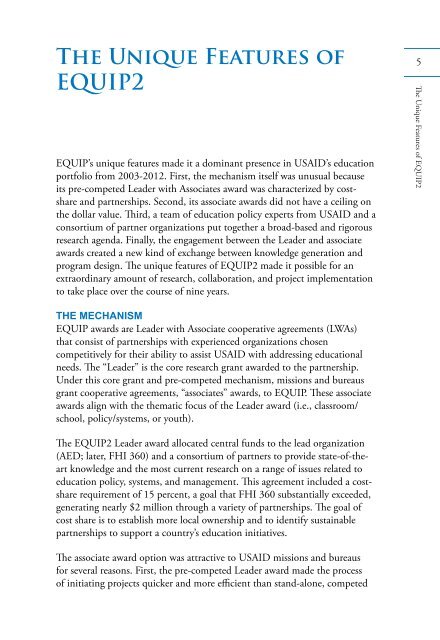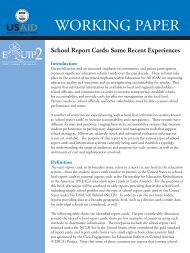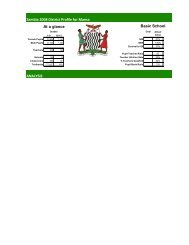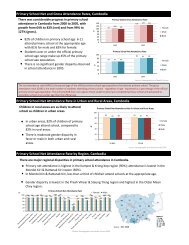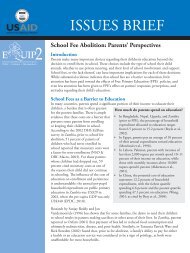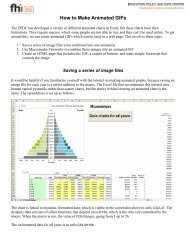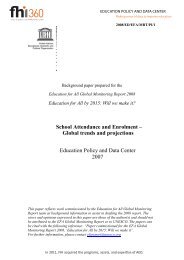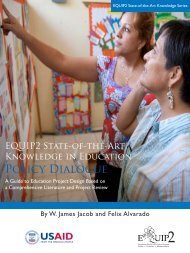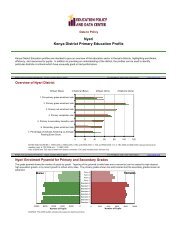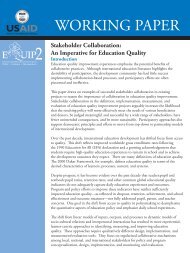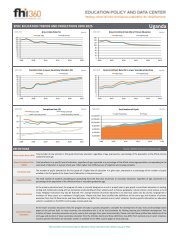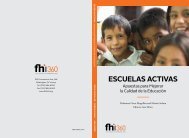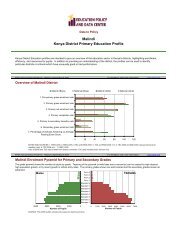EQUIP2 Final Report.pdf - Education Policy Data Center
EQUIP2 Final Report.pdf - Education Policy Data Center
EQUIP2 Final Report.pdf - Education Policy Data Center
Create successful ePaper yourself
Turn your PDF publications into a flip-book with our unique Google optimized e-Paper software.
The Unique Features of<br />
<strong>EQUIP2</strong><br />
EQUIP’s unique features made it a dominant presence in USAID’s education<br />
portfolio from 2003-2012. First, the mechanism itself was unusual because<br />
its pre-competed Leader with Associates award was characterized by costshare<br />
and partnerships. Second, its associate awards did not have a ceiling on<br />
the dollar value. Third, a team of education policy experts from USAID and a<br />
consortium of partner organizations put together a broad-based and rigorous<br />
research agenda. <strong>Final</strong>ly, the engagement between the Leader and associate<br />
awards created a new kind of exchange between knowledge generation and<br />
program design. The unique features of <strong>EQUIP2</strong> made it possible for an<br />
extraordinary amount of research, collaboration, and project implementation<br />
to take place over the course of nine years.<br />
5<br />
Thh e Unique Features of <strong>EQUIP2</strong><br />
THE MECHANISM<br />
EQUIP awards are Leader with Associate cooperative agreements (LWAs)<br />
that consist of partnerships with experienced organizations chosen<br />
competitively for their ability to assist USAID with addressing educational<br />
needs. The “Leader” is the core research grant awarded to the partnership.<br />
Under this core grant and pre-competed mechanism, missions and bureaus<br />
grant cooperative agreements, “associates” awards, to EQUIP. These associate<br />
awards align with the thematic focus of the Leader award (i.e., classroom/<br />
school, policy/systems, or youth).<br />
The <strong>EQUIP2</strong> Leader award allocated central funds to the lead organization<br />
(AED; later, FHI 360) and a consortium of partners to provide state-of-theart<br />
knowledge and the most current research on a range of issues related to<br />
education policy, systems, and management. This agreement included a costshare<br />
requirement of 15 percent, a goal that FHI 360 substantially exceeded,<br />
generating nearly $2 million through a variety of partnerships. The goal of<br />
cost share is to establish more local ownership and to identify sustainable<br />
partnerships to support a country’s education initiatives.<br />
The associate award option was attractive to USAID missions and bureaus<br />
for several reasons. First, the pre-competed Leader award made the process<br />
of initiating projects quicker and more efficient than stand-alone, competed


